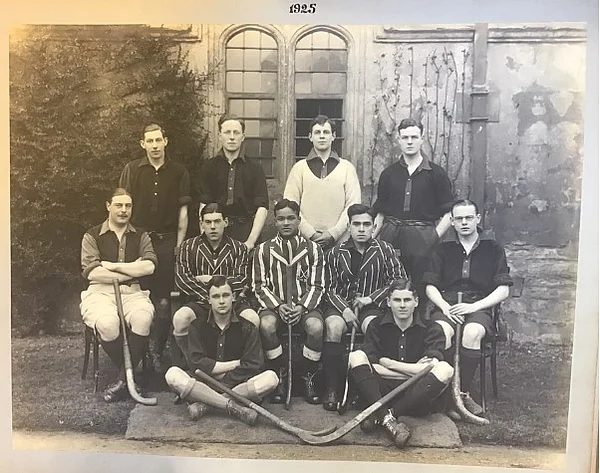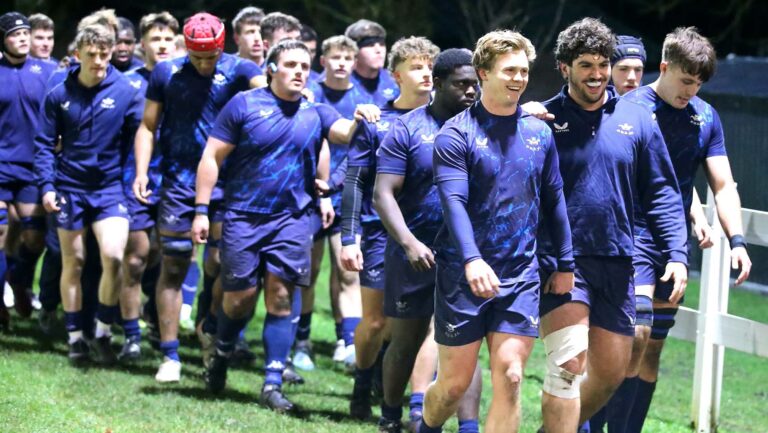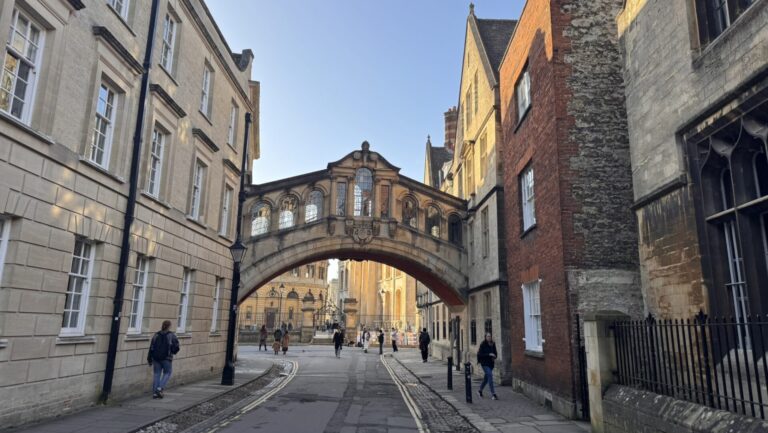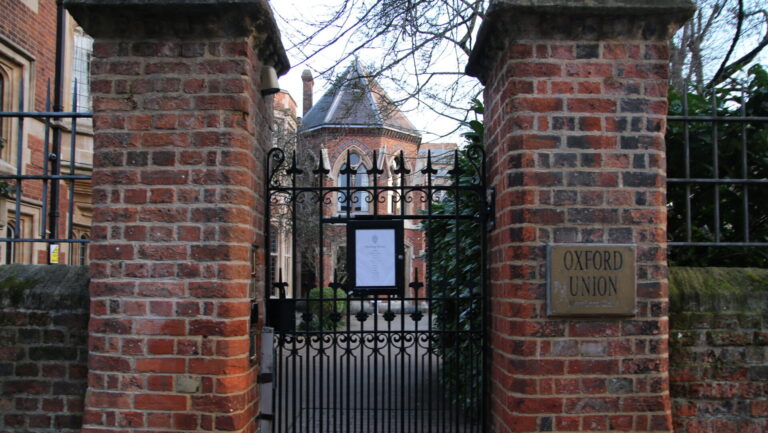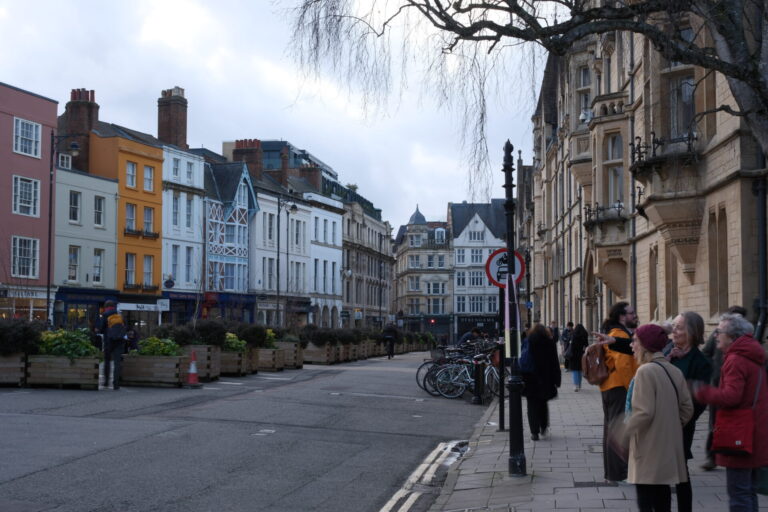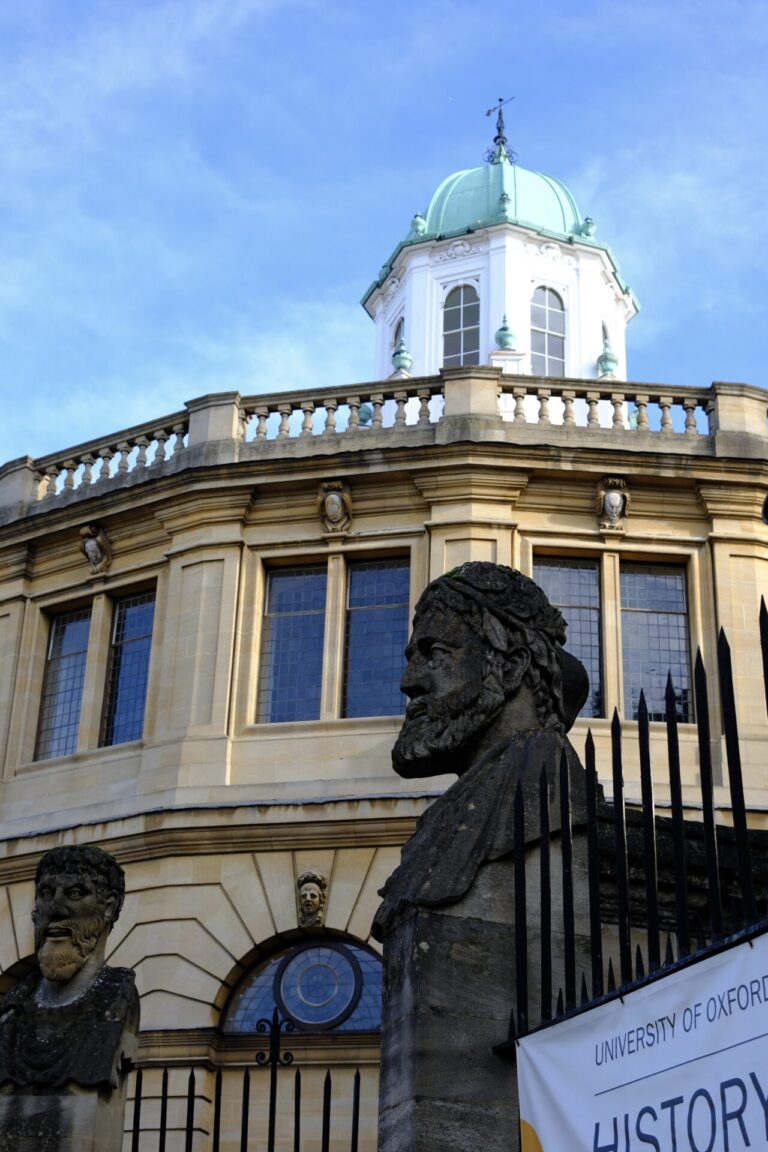Hemant Soren, the Chief Minister of Jharkhand, visited St John’s College on 23rd January to pay tribute to his ancestor, Jaipal Singh Munda, who graduated from the University of Oxford in 1926. Jaipal Singh was from a remote village and, following his university education, went on to become a statesman in the Constituent Assembly of India. Today, he is recognised as a seminal figure in advocating for the rights of Adivasis (Indigenous and tribal peoples), who account for nearly 100 million people in India.
Chief Minister Hemant Soren, on an official state visit, was welcomed at All Souls College on Friday afternoon. The event was organised by Professor Alpa Shah, an anthropologist and fellow of the College, whose fieldwork in Jharkhand, during which she lived among Adivasi communities, spans over 20 years. After a formal welcome in Nagpuri, the Chief Minister paid tribute to Dr Sarvepalli Radhakrishnan, the former President of India, who was a philosopher and fellow of All Souls. Following this, the delegation was received in the President’s lodgings at St John’s College, where an exhibition of archives relating to Jaipal Singh Munda, an Adivasi who matriculated at the College in 1922 to read Politics, Philosophy, and Economics, had been laid out.
Addressing the President of St John’s, Dame Sue Black, and a room full of scholars, the Chief Minister said he was impressed to see these records preserved, which give insight into the incredible life of Jaipal Singh Munda. The collection contains several photographs and documents relating to his student life at the College. He stated that it would be a pleasure to co-host a joint archive with the government of Jharkhand and St John’s College to continue preserving the legacy of Adivasi scholarship.
The evening ended at the Blavatnik School of Government, with the Chief Minister in conversation with Professor Alpa Shah and Professor Maya Tudor, examining how Jharkhand, an Indigenous-majority state, but also a mineral-rich one, was looking to the future. The Chief Minister’s vision for 2050 revolves around shifting from an extraction-based economy, centred on removing and exporting natural resources from the land, to an inclusive one. He was asked tough questions about how he would ensure that mining was not colonised by outsiders and did not dispossess, exploit, and further impoverish Adivasis, as it had in the past. In his responses he recognised the importance of these questions, which went to the heart of the values that Jaipal Singh Munda fought for.
Jaipal Singh Munda was born in 1903 in the small village of Takra. He arrived in England in 1918 under the patronage of Canon William Cosgrove. Arriving at Oxford in 1922, he described himself as the ‘only Asiatic’ there, as Asians were then referred to. Non-European students were both hyper-visible and socially marginalised within elite academic institutions. As an Adivasi, historically positioned outside India’s caste hierarchy, Jaipal Singh was doubly marginalised even among other Indians. Yet the archives reveal how Jaipal Singh’s brilliance extended to many aspects of college life.
A photo from 1925 shows the St John’s College Hockey Team, with Jaipal Singh smiling in the centre as their captain. That same year, he earned a Blue and became president of St John’s College Debating Society in October. Through these societies, Jaipal Singh was able to connect with and establish himself among the intellectual elites of Britain. His prowess as a sportsman should not go unnoticed, as it took him to the Amsterdam Olympic Games in 1928, where he captained the Indian Hockey Team that won a gold medal. From early on, then, Jaipal Singh displayed his talents as a naturally skilled leader. In the collection at St John’s, you can see an entry in the Debating Society’s Minute Book, signed by him as president on the 16th November 1925. Under his leadership, the society debated issues such as ‘This House deplores the existing public school system’, ‘This University stands in urgent need of reform’, and ‘That the spirit of nationalism is incompatible with world peace’, questions still very much pertinent today.
The archives at St John’s show the life of a talented man, who deserves more recognition than he has received, both internationally and nationally. However, his story goes beyond that of a man defying all financial and societal odds to thrive in one of the most traditional institutions in the world. Professor Shah, who has worked on the legacy of Jaipal Singh Munda, says his contribution as a statesman is equally exceptional; he spent his career striving for the rights and recognition of some of the most marginalised communities in the world.
After a few years in the British Colonial Service, during which he moved among British and Indian elites, Jaipal Singh became aware in 1938 of an Adivasi agitation in what is now the state of Jharkhand. Adivasis were resisting the seizure of their land and forests by powerful higher-caste outsiders, but their concerns were ignored by the state. At this moment, Jaipal Singh Munda resolved to fight for his people’s future. After returning home, he led the Adivasi Mahasabha party (the great Adivasi assembly), and in 1946 was sent to the Constituent Assembly, an elected body tasked with drafting India’s Constitution. Meanwhile, he also set up a weekly bulletin, the Adivasi Sakam, which brought greater awareness to the ongoing oppression that Adivasis faced. When speaking for the first time at the Constituent Assembly, he declared that he was proud to be a ‘jungli’ – a pejorative term used in India to disparage Adivasis. In one of his most powerful speeches to the Assembly, he stated:“You cannot teach democracy to the tribal people; you have to learn democratic ways from them. They are the most democratic people on earth.”
His life was dedicated to recognising Adivasi rights and their claim to the land, Shah notes in an essay on Jaipal Singh Munda for the Indian magazine, Outlook. He championed better working conditions; Adivasis were often forced to travel long distances to work low-income jobs within large corporations. Often, these corporations would displace communities, seeking the valuable mineral resources contained within the land. He also defended Adivasi cultural practices and advocated for their egalitarian social organisation. Shah tells me her own research shows how in Adivasi communities, leaders can be randomly selected and rotated, so that no single family could consolidate enduring power or authority. She also noted that Adivasi marriages were brought about by the free choice of both partners, unlike other places in India. “Gender roles were grounded in mutual respect, reflecting a broader culture of dignity”, she observed. Indeed, Jaipal Singh himself complained about the lack of women representatives within the Constituent Assembly.
In doing so, he challenged the prevailing ‘jungli’ conception of Adivasis as backwards and primitive. Drawing on the rhetorical skills he had honed at Oxford, Jaipal Singh’s position at the Constituent Assembly was crucial in challenging prejudices and served as a representative voice for those most marginalised. He recognised that the problems of inequality for Adivasis came not only from the legacy of British colonial rule, but from within India’s class and caste hierarchies. He was the primary force behind the movement towards a separate Adivasi state which would secure both their rights and land ownership. However, the state of Jharkhand was only formed in 2000, 30thirty years after Jaipal Singh died, amidst continued patterns of dispossession and alienation of Adivasis.
Honouring Jaipal Singh Munda’s legacy is more crucial now than ever, as the state determines its developmental priorities. Even though Adivasis live on some of the greatest mineral reserves in the world, they remain some of the poorest in India. Despite Jaipal Singh’s work, Jharkhand’s founding was delayed by Indian political leaders who continually resisted the idea of an Adivasi self-governing territory. Another problem was that India’s economic liberalisation in the 1990s allowed wealthy mining companies to target the land upon which Adivasi livelihoods were built. Since 2006, Adivasi lands have become a warzone after the Indian state deployed thousands of troops to surround their forests. Beneath the land were rich minerals, which both the state and international corporations wanted to extract. Despite legal protections, the state army entered on the pretext that they were handling groups of banned left-wing armed guerrillas, Naxalites, who also lived in the forests. Shah, who researched the spread of the insurgency and counterinsurgency, shows in her book Nightmarch that the result was the widespread dispossession, arrest, and killing of innocent Adivasis. Jaipal Singh Munda’s work in the Constituent Assembly informs questions about Adivasi agency and autonomy today. In the ‘Jharkhand Vision 2050’ brochure, the Chief Minister states his aspiration to transform Jharkhand into a “high-value, upper-middle-income state” with an economy driven by “productivity and value creation”. During this transition, the founding principle of Adivasi sovereignty must remain a crucial aspect of political discussions going forward.
Dr Regina Hansda, an Adivasi who is a Lecturer at the University of Edinburgh, says that the current moment marks a turning point for the interests of Adivasi sovereignty. She stresses the importance of protecting the jal (waters and rivers), jungle (forests), and zameen (land) against state and corporate interests: “Jaipal Singh Munda should be seen as a classic example of how indigeneity, coloniality and modernity can be navigated in a way that our identity and sense of self is not compromised.”
The story of Jaipal Singh Munda’s life and career stands as a testament to the value of widening educational access for Adivasis. An initiative by the Chief Minister in 2021 saw the creation of the Marang Gomke scholarship, intended to promote social equity. Each year, the scheme provides Master’s scholarships at leading UK universities for students from marginalised communities in Jharkhand.
Dr. Hansda points out that in the West, mainstream conversations about India rarely include Indigenous, tribal people. “Access to higher education is still a major issue for the Adivasi population and the Chief Minister’s visit reopens the possibility of students, including Oxford students, to study alongside Adivasi students in future to co-learn, co-imagine and co-create a hopeful future together.”
The very fact that Jaipal Singh Munda attended St John’s College should encourage greater historical curiosity. There are many more stories yet to be uncovered about those early pioneers who managed to break through and navigate Oxford’s rigid institutional system. While at the Blavatnik School, an Indian man in the audience related how his son had asked his Indian teacher where Jharkhand was, only to find that she was unable to answer. This instance reflects a broad lack of awareness even within India that makes curiosity about Adivasi lives all the more important to bring to the centre. These communities deserve attention, not only because ongoing injustices persist, but, as Jaipal Singh emphasised, there is so much to learn from their livelihoods – politically, socially, and culturally. Engaging with these different perspectives better equips us to understand the challenges faced by marginalised Indigenous communities all around the world.
During his conversations with Lady Sue Black, the President of St John’s, the Chief Minister raised the possibility of a doctoral scholarship for an Adivasi student to be hosted at St John’s in the name of Jaipal Singh Munda to work on the social justice challenges that Jaipal Singh devoted his life to. A shared doctoral scholarship between St John’s College and the Jharkhand government would signal a joint commitment to opening Oxford to some of the most excluded communities, and to advancing scholarship on pressing injustices. Jaipal Singh Munda’s story should remind institutions like Oxford of the responsibility they have not only to preserve the histories of their alumni, but also to actively engage with the communities who continue to wrestle with their imperial past.


